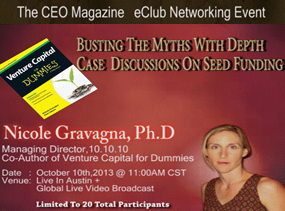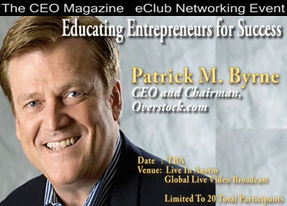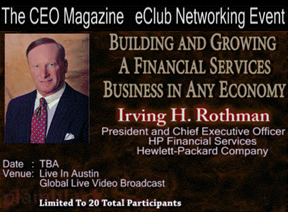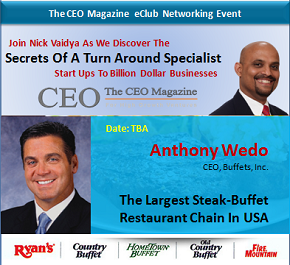You are here
- John Mattone |
- Leadership |
- Thu, 10/24/2013 - 12:17

One day, he was sitting on top of the world with a $1-million salary and $5.5 million in stock options. The next day, his board asked him to resign in shame and embarrassment after being caught in a lie about a degree he said he had earned in the early 1980s from Stonehill College in Massachusetts. Who am I talking about?
Scott Thompson, the former CEO of Yahoo. A few years ago, Dennis Kozlowski, then CEO of mammoth Tyco, was also asked to resign amid strong speculation he was siphoning company money for his personal use. The courts later determined that Kozlowski indeed saw Tyco’s checking account as an extension of his personal checking account to the tune of over $80 million. Kozlowski is currently serving jail time in a New York State correctional facility. Lance Armstrong’s fall from grace likewise has been swift and harsh. Sporting News’ headline on October 23rd, 2012 read “Lance Armstrong’s Sterling Legacy Unraveling Myth by Myth, Lie by Lie”.
These are just three extreme examples of leadership immaturity. There are countless other instances of executives, CEOs, senior executives, managers, and emerging executives who are skyrocketing to success one day and falling from grace the next. An immature leader cares more about personal gain than the well being of the company and the people he manages. An immature leader always operates with a set of values, thoughts, beliefs, emotions, and actions that are a roadblock to unlocking and unleashing greatness in themselves and their teams.
The difference between an immature leader and a great leader can be described in one word: character. In her 2012 book, Quiet: The Power of Introverts in a World that Won’t Stop Talking, author Susan Cain describes a great shift in American cultural values, from a Culture of Character in the 1800s to a Culture of Personality in the 1900s that still exists today. We used to value strong moral character, hard work, fortitude and thoughtfulness. Advice manuals of the late 1800s emphasized attributes such as Citizenship, Honor, Morals, Manners, Integrity and Duty, while self-improvement books of the early 20th Century celebrated such characteristics as Forceful, Attractive, Magnetic, Fascinating and Dominant. In the corporate world, this shift is readily apparent today: instead of rewarding character, companies too often embrace a leadership culture that promotes personality and charisma over honesty and integrity. Great leaders realize truth and honesty are the pillars upon which relationships, teamwork, and positive energy are built. Great leaders would rather make a minor profit honestly than a major one dishonestly. Exaggerations, padded expense accounts, deliberately shaved tax forms submitted without hesitation, showing up for work late, leaving early, and theft of company property (which now reaches into the billions annually) are all acts of dishonesty. Mature leaders create an environment in which they themselves live and promote a truthful, above-board, honest existence.
I am privileged to speak all over the globe to a variety of leadership audiences, and occasionally I have the opportunity to address a high school or middle school group. Several years ago, I was asked to address a group of 500 eighth-graders and their families, at a middle school graduation in Orlando, Florida. My assigned topic was leadership and success, and I was excited to share my thoughts on the topic of character as a key in driving our success and our ultimate destiny. As I stood before the audience, I decided to ask the students: “Does anyone want to propose a great definition of character?” After three or four seconds, a young man put his hand up. I asked him if he wanted to share a definition of character, and he softly muttered some powerful words that only a few of his classmates and I could hear. His words so impressed me that I asked him his name and invited him to come to the microphone. This young man stood up and with pride, clarity, and eloquence, stated, “Character is what you do when no one else is watching.” The crowd erupted in applause. I was awestruck, not because his definition was anything ground breaking, but because this young man clearly recognized the incredible value of possessing a working definition of character as a guide to his everyday decision making. It moved me and the thousands of people in attendance.
One of the messages I regularly deliver to executives in my coaching practice is: Character doesn’t determine your destiny; it determines your ultimate destiny. Your character, or lack of it, will strongly impact how you are viewed and talked about, and it determines how others will remember you for the long run. Your character, or lack of it, likewise will impact the bottom-line. Empirical research conducted by The Boston Consulting Group, PwC, The Hay Group, The Hackett Group, and Executive Development Associates, all establish that great leadership drives superior operating results. All of us retain total control over how we will be remembered. It is a conscious choice we make. The question I ask all executives is, “Will you make the right choice?”
Comments
Follow The Blog
Blog Categories
- Business Ops. (45)
- Editors (3)
- Entrepreneurship (196)
- Finance (25)
- Leadership (529)
Blog Authors
- Guest Blogger (835)
- Cynthia Kay (92)
- Linda Henman (78)
- Dianna Booher (46)
- Craig Ross (31)















